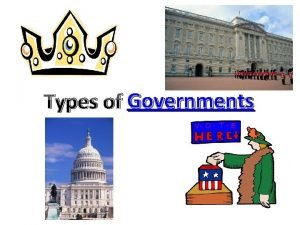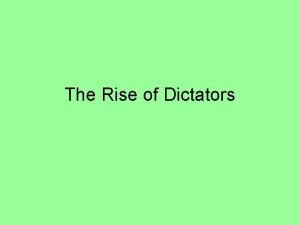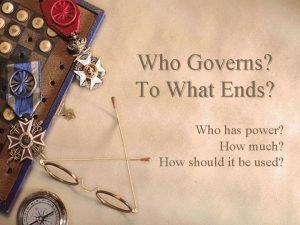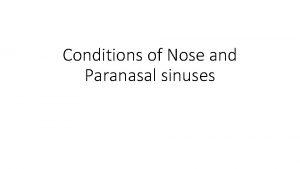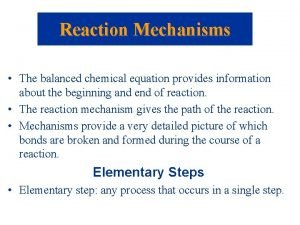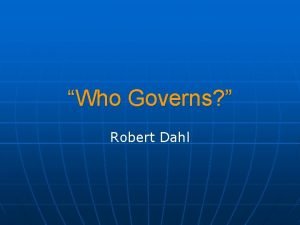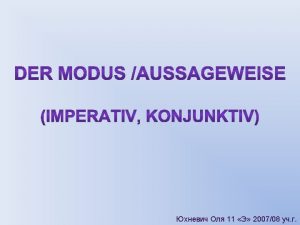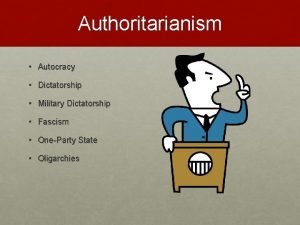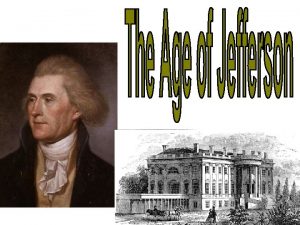Types of Governments Dictatorship Who governs One person







- Slides: 7

Types of Governments

Dictatorship • Who governs? – One person • How do you get power? – Usually by force (though some have been elected they keep their power through force) • How is power transferred? – The dictator decides before (if they can) or there is usually chaos following • How are laws/decisions made? – The dictator makes all decisions • Advantages – Easy to make decisions • Disadvantages – No choices – No rights • Examples – Fidel Castro of Cuba – Hitler of Germany – Saddam Hussein of Iraq

Theocracy • Who governs? – A religious group • How do you get power? – Sometimes it is a chosen government, sometimes through force • How is power transferred? – Stays within the religious group • How are laws/decisions made? – The religion dictates decisions • Advantages – Easy to make decisions • Disadvantages – Hard if you are not part of the religion • Examples – Iran – The Vatican City

Absolute Monarchy • Who governs? • Advantages • How do you get power? • Disadvantages • How is power transferred? • Examples – A king, queen, shah – Is “given” power to rule by some higher power – Stays within the family • How are laws/decisions made? – The monarch makes all decisions – Easy to make decisions – No choices – No rights – Qatar – Saudi Arabia – Oman

Constitutional Monarchy* • Who governs? • Advantages • How do you get power? • Disadvantages – A law making body, perhaps the king is involved – The law making body is elected • How is power transferred? – Elections • How are laws/decisions made? – Choice – More rights/freedoms – Many have multiple political parties so decisions are hard to make • Examples – Jordan- active monarch – United Kingdom- non-active monarch – Japan- non- active monarch – A law making body (usually chosen by people) makes decisions. King may have input. • Active Monarchs have a role in the law making • Non-Active monarch are more figure heads

Representative Democracy • Who governs? – A law making body • How do you get power? • Advantages – Choice – More rights/freedoms – The law making body is elected • Disadvantages – Elections • Examples • How is power transferred? • How are laws/decisions made? – A law making body (chosen by people) makes decisions – Many have multiple political parties so decisions are hard to make – – – USA France India * United Kingdom * Japan

Direct Democracy • Who governs? – The individual people of voting age • How do you get power? – No one person has power, all power is shared • How is power transferred? – If there is a “leader” they are chosen by the people • How are laws/decisions made? – The people listen to both sides then vote • Advantages – The people are invested in the decisions • Disadvantages – If there are lots of decisions to be made, it can be very time consuming • Examples – No countries have true direct democracies…they are too big – New England Town meetings – Cantons in Switzerland
